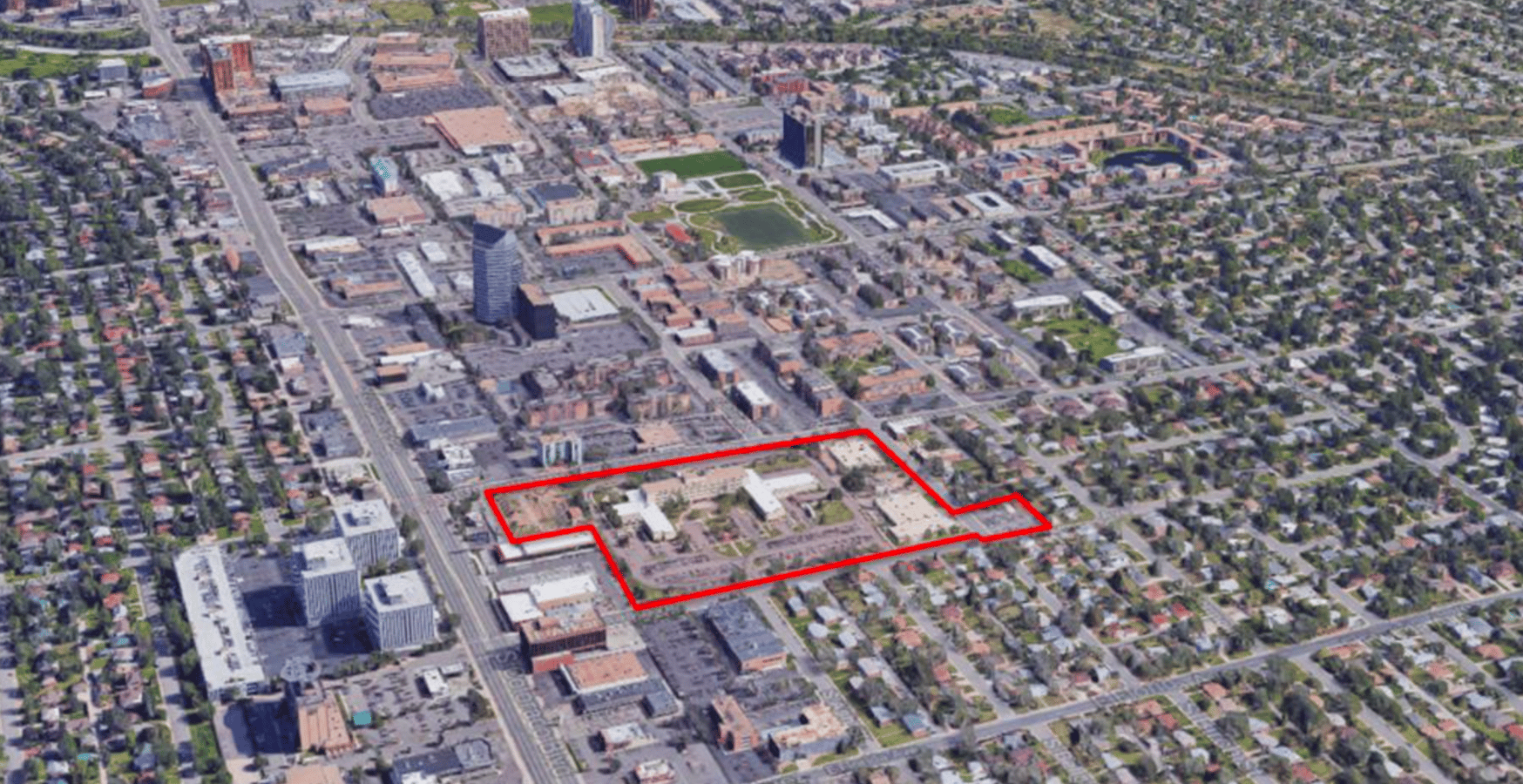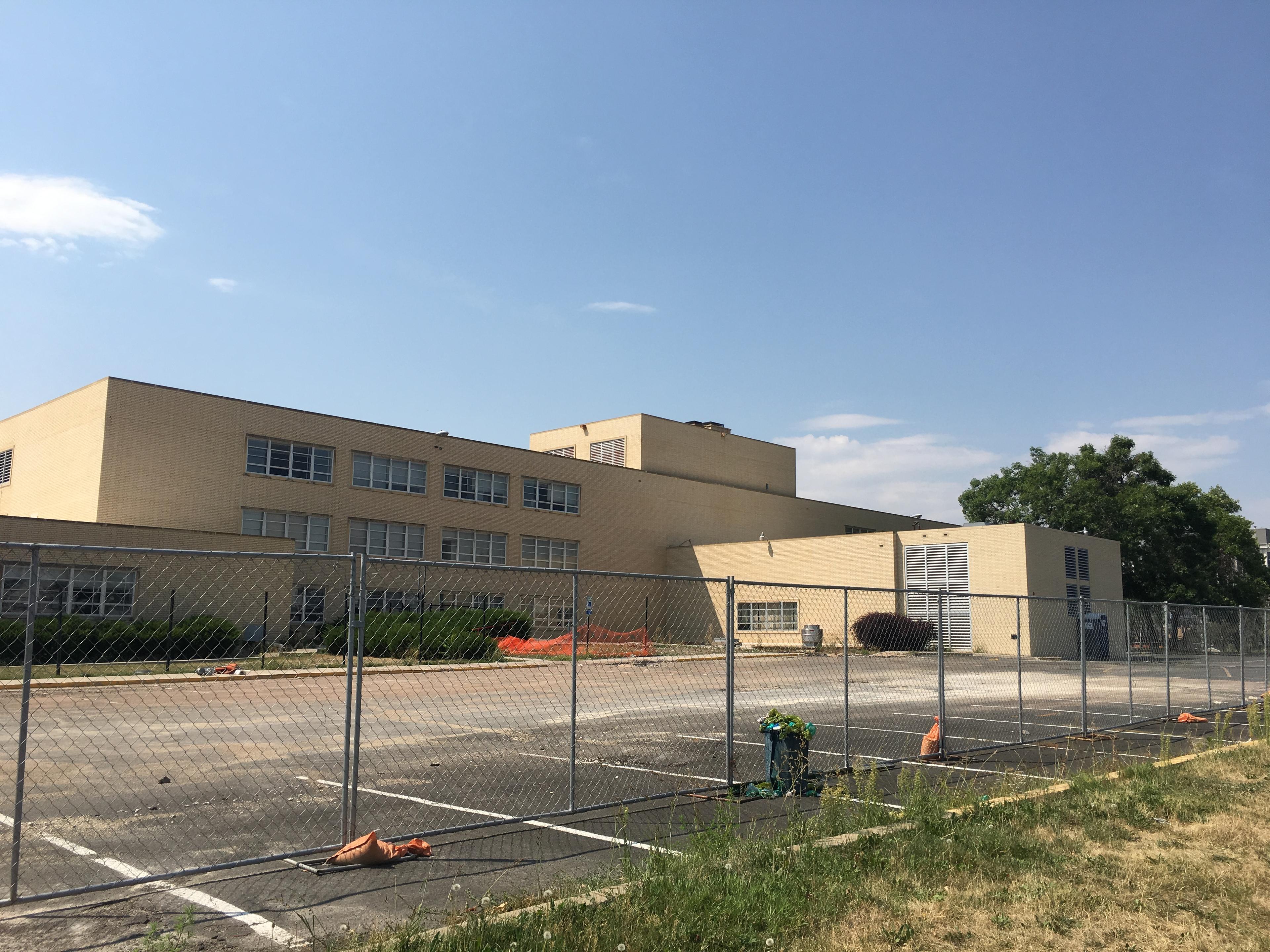UPDATE, Mon., Oct. 22: Denver City Council voted to postpone the initial vote on the rezoning until November 5.
As the Colorado Department of Transportation's deteriorating former headquarters languishes on Colorado Boulevard, a developer is readying a final pitch to demolish it and plop a bunch of affordable homes and businesses down in its place.
The city government brokered a $19.3 million deal between CDOT and Kentro Group, which plans to create a somewhat walkable enclave near the sprawling strip. Kentro would build 150 units of affordable housing as part of the deal, which isn't yet closed. Residents making 60 percent of the area median income or less would qualify (about $48,000 for a family of three).
It's a tiny fraction of the estimated 32,000 homes needed in the city.
Denver City Council members hold some keys to the project, which would require new zoning rules to transform 13.5 acres between Arkansas and Louisiana avenues. The Land Use and Transportation Committee advanced the rezoning Tuesday by a vote of 4 to 1. Councilman Rafael Espinoza voted against while Councilmembers Mary Beth Susman, Wayne New, Albus Brooks, and Jolon Clark voted in favor.

If Council approves the rezoning, the project, which would engulf properties adjacent to the former CDOT building, would add density to the Virginia Village neighborhood. Kentro is planning 150,000 square feet of commercial space dedicated to things like restaurants and shops. Buildings would rise as high as eight stories, which aligns with some structures in the area. What will go inside them -- market-rate homes, hotel rooms -- remains undecided, Kentro Director of Development Chris Viscardi told me.
"It'll probably be a mix," he said.
The last time this neighborhood had a blueprint for development, the Watergate scandal was in the news.
Virginia Village is operating on a neighborhood plan from 1973 -- long before the current housing shortage and before city-led initiatives to create neighborhoods navigable by something other than a car. Even the new zoning would maintain the area's "suburban" classification in the zoning code, meaning surface parking lots, for example, would be fair game.
Councilwoman Mary Beth Susman said rezoning the area will only go so far.
"It is unfortunate that we can't somehow create a nicer Colorado Boulevard," Susman said. "As long as we have that suburban context, I'm not sure we'll be able to do it."
Neighbors are concerned about -- yes -- traffic and parking from new development.
"CDOT's selling the property and it's going to redevelop," Kashmann said. "We're clear on that. We also know that the community that surrounds this is not ready for this yet. And I don't just mean that there are some people afraid. The infrastructure isn't ready."
An agreement between the city and Kentro includes a requirement for the developer to curb traffic with investments in things that might include transit passes for residents, a shuttle service, and bike share.
Kentro also lowered building heights from 12 stories to eight, based on neighborhood concerns, and has committed to creating 200 jobs onsite.
The Virginia Village/Ellis Community Association remains neutral on the project, according to comments submitted to the city.
"The [registered neighborhood organization] does not feel that there is enough information at this time, and we plan to make our position official prior to the second reading by City Council later this year," a rep stated.
The city received 13 letters opposed to the rezoning, and 25 in support of it.
It's scheduled for a public hearing in front of the full Council on November 19.












